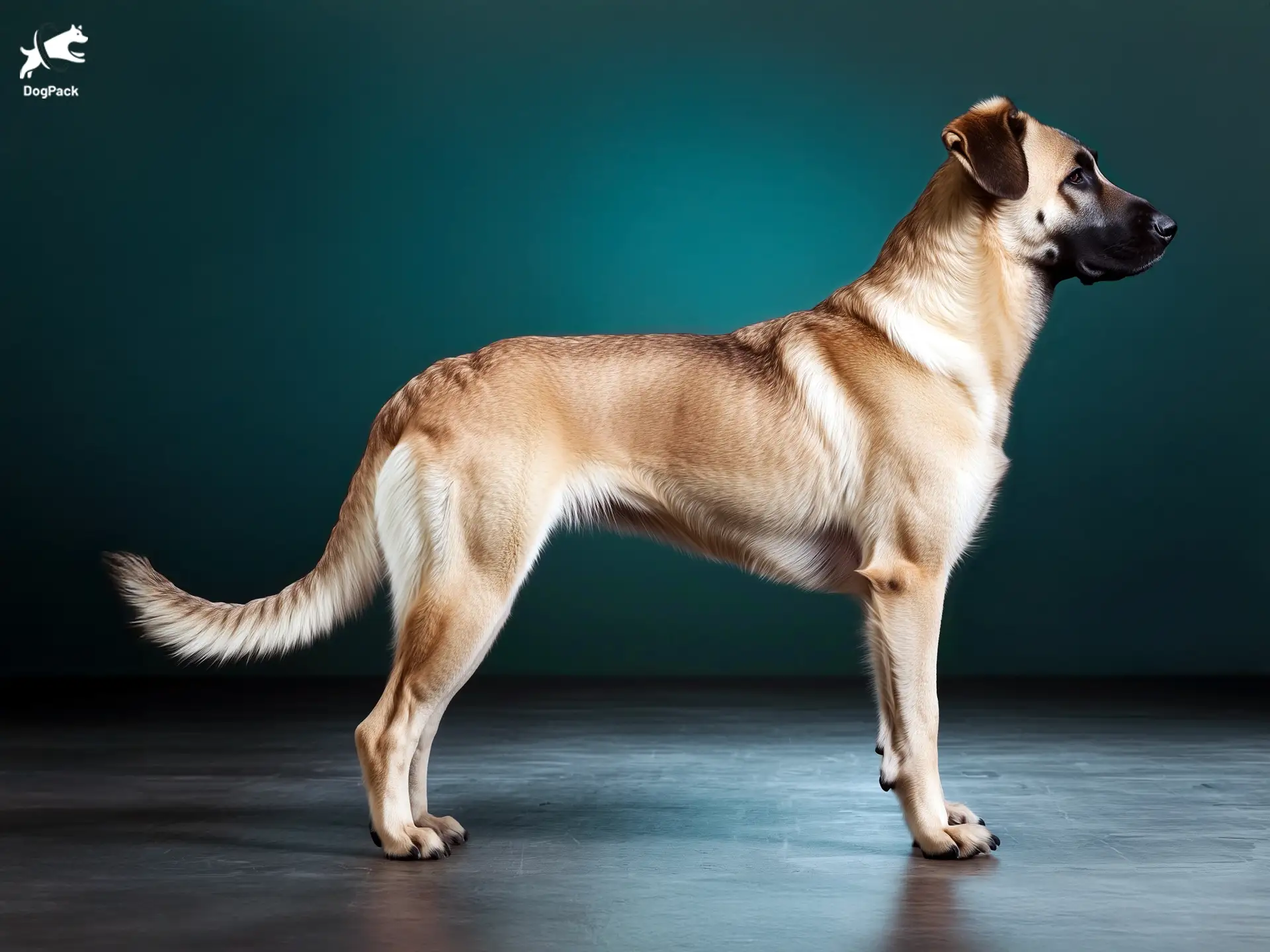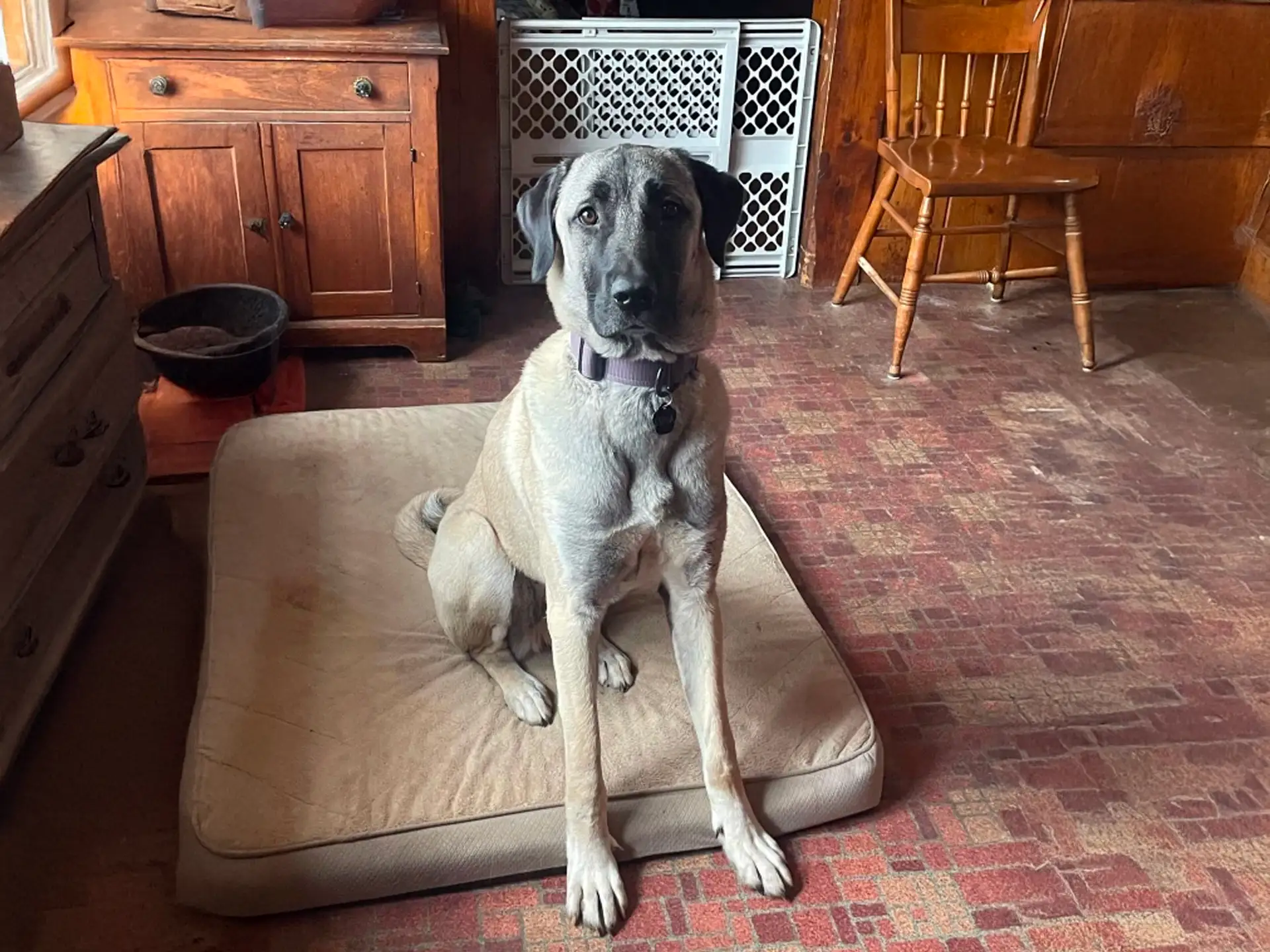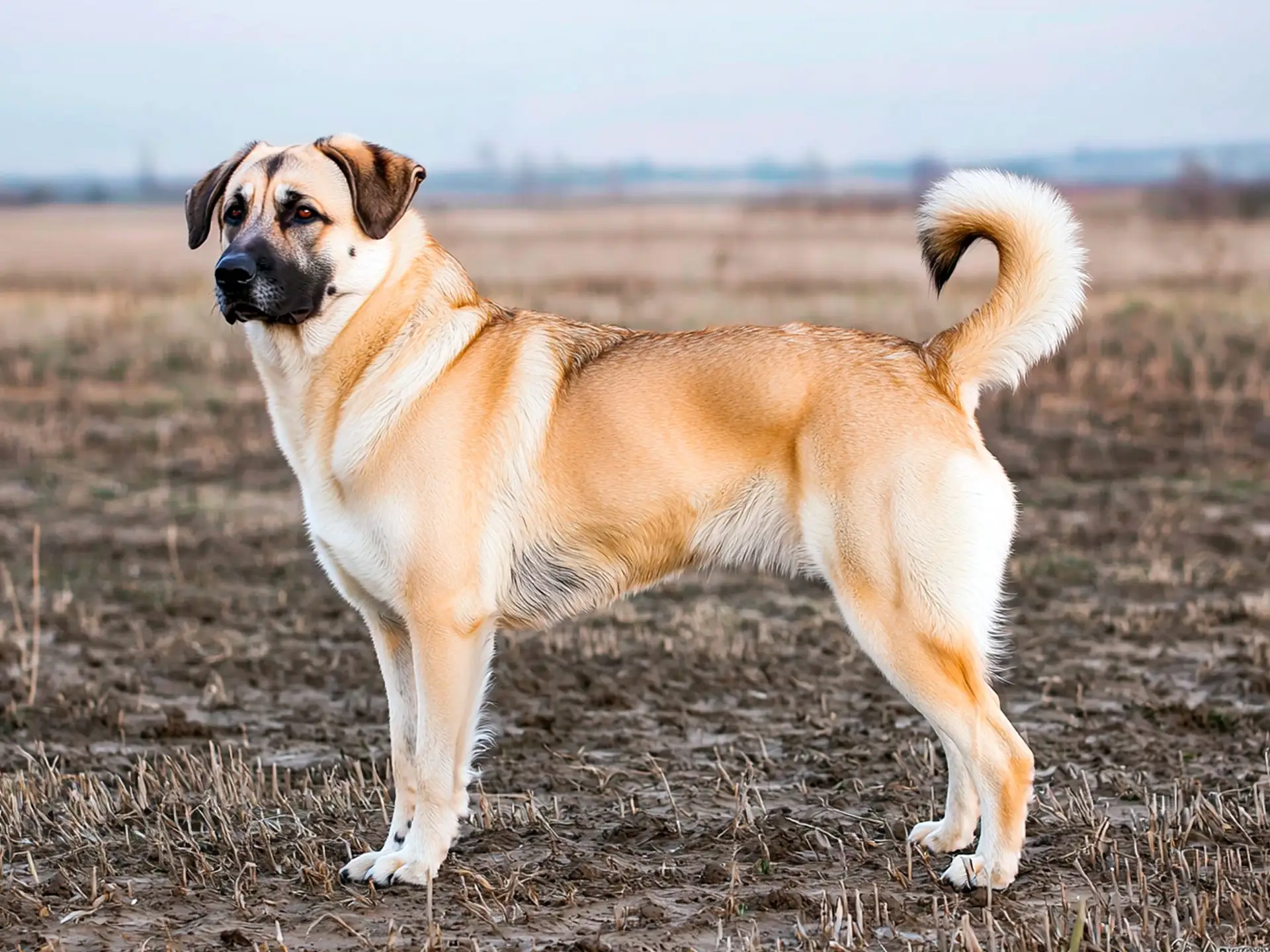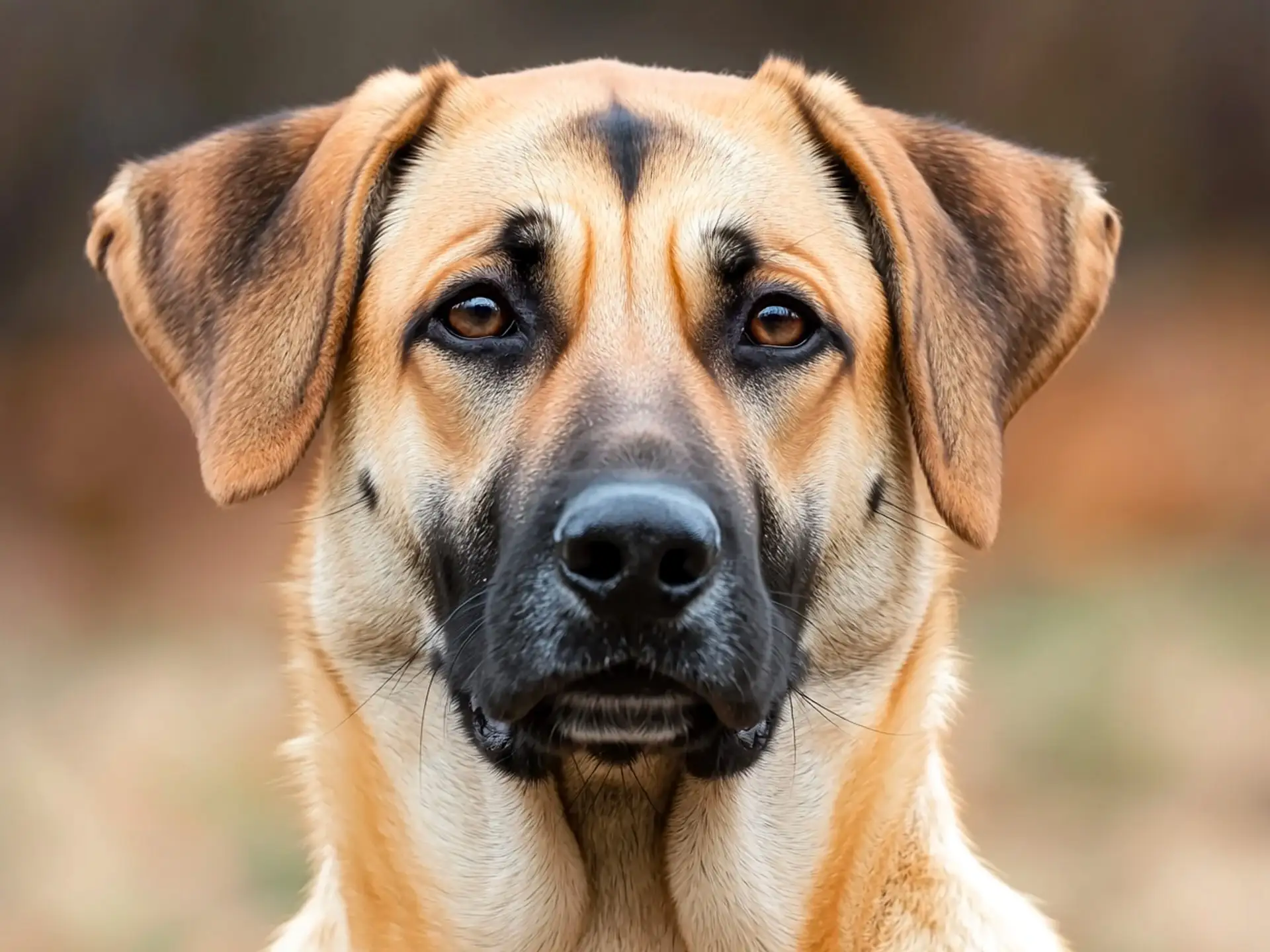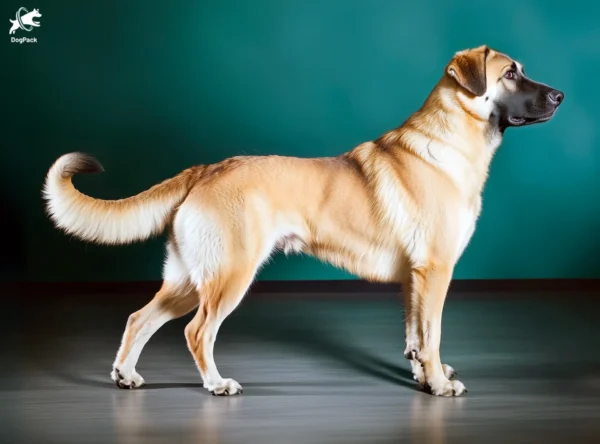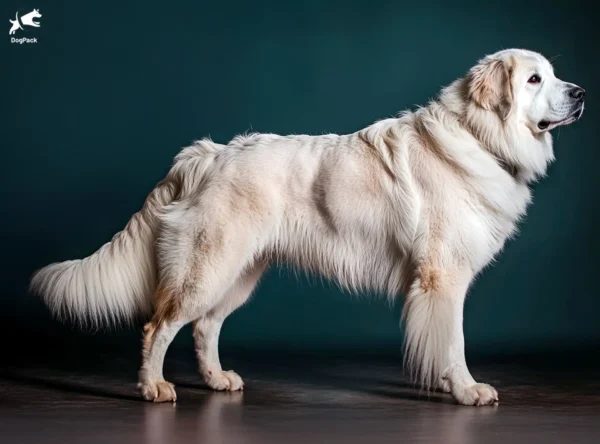Kangal Shepherd Dog Breed Info & Overview
The Kangal Shepherd, a Turkish breed of impressive size and strength, is famed for its protective nature and exceptional livestock guarding abilities. With roots tracing back to ancient times, this intelligent and loyal dog excels as a guardian and can be a devoted companion when properly trained and socialized. The Kangal’s blend of courage, intelligence, and devotion makes it a truly remarkable breed.
Characteristics
Pictures
Breed History
Originating from the Sivas region of Turkey, the Kangal Shepherd has a rich history as a guardian of flocks. This breed has been protecting livestock from predators like wolves and bears for centuries. Their lineage is believed to be ancient, possibly descending from early mastiff-type dogs.
The Kangal was traditionally bred for its working ability rather than appearance. Local shepherds prized them for their courage and reliability in safeguarding herds. They became a symbol of national pride in Turkey, even appearing on postage stamps.
In recent decades, the breed has gained international recognition. Exported to other countries, Kangals are now used worldwide for livestock protection. However, Turkey regulates their export to preserve the breed’s purity.
Temperament, Personality
The Kangal Shepherd is renowned for its loyalty and protective instincts. These dogs form strong bonds with their families and livestock, often displaying a calm and steady demeanor. Their natural guarding tendencies make them vigilant and attentive to their surroundings.
While they are affectionate with familiar people, Kangals can be reserved or wary around strangers. Early socialization is crucial to ensure they differentiate between threats and normal social interactions. Their independence requires an owner who understands firm but gentle training methods.
Due to their protective nature, the Kangal may not be the best choice for novice owners. They thrive under the guidance of someone experienced with large, strong-willed breeds. Proper training can harness their instincts, making them reliable companions and guardians.
Physical Characteristics
The Kangal Shepherd is a large and muscular dog, exhibiting both strength and agility. Males typically stand between 30 and 32 inches tall, while females range from 28 to 30 inches. Their weight can vary from 90 to 145 pounds, reflecting their robust build.
Their coat is short and dense, providing protection against harsh weather. Coat colors are usually a solid pale tan or sable, with a distinct black mask on the face. Their ears are medium-sized and drop down, complementing their expressive eyes.
A defining feature of the Kangal is its impressive head and powerful jaws. Their overall appearance conveys dignity and courage, befitting a breed that has stood guard over flocks for centuries.
Health Issues
Generally, the Kangal Shepherd is a hardy breed with few genetic health problems. However, like many large breeds, they can be prone to hip dysplasia. Regular veterinary check-ups and screening are important to detect any joint issues early on.
Another concern can be bloat, a serious condition affecting deep-chested dogs. Owners should be aware of the symptoms and take preventive measures, such as feeding smaller meals throughout the day and avoiding vigorous exercise after eating.
Responsible breeders will conduct health tests to minimize these risks. Keeping the Kangal at a healthy weight and providing appropriate exercise can contribute to their overall well-being and longevity.
Grooming Needs
The Kangal Shepherd has a short double coat that is relatively easy to maintain. Regular brushing once or twice a week can help remove loose hair and keep their coat in good condition. During shedding seasons, more frequent brushing may be needed to manage the increased hair loss.
Bathing is rarely necessary unless the dog becomes particularly dirty. Their coat naturally repels dirt and water, making them low-maintenance in that regard. Overbathing can strip essential oils from their skin, so it’s best to bathe them only when needed.
Trimming nails, cleaning ears, and dental care should be part of their routine grooming. The Kangal appreciates the attention during grooming sessions, which can also strengthen the bond between the dog and owner.
Exercise Requirements
Though not hyperactive, the Kangal Shepherd requires regular exercise to stay healthy and content. Daily walks and ample space to roam are ideal for this breed. They enjoy having a job to do, so activities that engage their mind and body are beneficial.
Providing a secure, large yard or countryside environment allows them to express natural behaviors. They are not suited for apartment living or confined spaces. Without sufficient exercise and stimulation, they may become bored or develop undesirable behaviors.
Interactive play and training sessions can also satisfy their need for mental engagement. The Kangal thrives when given purposeful tasks, reflecting their heritage as diligent guardians.
Training Tips
Training a Kangal Shepherd requires patience, consistency, and understanding of their independent nature. Early socialization is crucial to help them become well-rounded adults. Exposing them to various people, animals, and environments can reduce wariness of new situations.
Positive reinforcement methods work best, as harsh training can lead to resistance or mistrust. They are intelligent and capable learners but may question commands if they see no purpose. Establishing clear leadership without force encourages cooperation.
Due to their size and strength, it’s important to instill good manners from a young age. Enrolling in obedience classes with a trainer experienced in guardian breeds can be highly beneficial.
Nutrition, Diet
Feeding the Kangal Shepherd requires attention to quality and quantity to support their growth and health. A diet rich in high-quality protein is essential for maintaining their muscle mass. Portion sizes should be appropriate for their age, size, and activity level.
Puppies need specially formulated food to support their rapid growth without causing joint issues. It’s advisable to consult with a veterinarian to determine the best feeding regimen. Adult Kangals may require two to three meals a day to prevent overeating and reduce the risk of bloat.
Monitoring their weight and adjusting food intake as needed helps prevent obesity. Providing balanced nutrition ensures the Kangal remains energetic and healthy throughout their life.
Adoption, Breeders
Finding a Kangal Shepherd requires careful research to locate reputable breeders or adoption organizations. It’s important to work with breeders who prioritize health, temperament, and breed standards. Visiting the breeder and meeting the parents can provide insight into the puppy’s future traits.
The Kangal Dog Club of America is a valuable resource for information and breeder referrals. They promote responsible breeding practices and preservation of the breed’s qualities. Adoption is another option; rescue groups occasionally have Kangals in need of homes.
Ensure that any breeder or organization provides health clearances and supports the well-being of their dogs. Acquiring a Kangal is a significant commitment, and starting with a responsible source sets the foundation for a successful relationship.
Family Pet?
While the Kangal Shepherd can be a devoted family companion, they are best suited to homes that understand their unique needs. Their protective instincts extend to their human family, making them loyal and watchful guardians. However, their size and strength require supervision around small children.
Early socialization within the family unit helps them integrate smoothly. Teaching children how to interact respectfully with the dog is important. The Kangal may not tolerate rough play or unfamiliar children without proper introduction.
They may also display territorial behavior towards other pets, especially unfamiliar dogs. Careful introductions and management are necessary to ensure harmony in multi-pet households. The Kangal thrives in environments where their role as a guardian is respected.
Right For You?
Deciding if the Kangal Shepherd is right for you involves evaluating your lifestyle and capabilities. This breed requires ample space, consistent training, and an experienced owner familiar with large guardian dogs. They are not typically recommended for first-time dog owners.
If you have a rural property, livestock to protect, or a need for a dedicated guardian, the Kangal may be an excellent fit. Their independence and intelligence can be rewarding for those who appreciate their unique qualities.
Consider the long-term commitment, including their exercise, training, and socialization needs. When their requirements are met, the Kangal Shepherd can be a loyal and invaluable companion.
Conclusion
With its rich heritage and unwavering loyalty, the Kangal Shepherd stands as one of the premier guardian breeds. Their protective instincts and gentle nature with loved ones make them a remarkable dog for the right owner. Providing them with proper care, training, and respect for their instincts can lead to a fulfilling partnership.
If you’re seeking a devoted protector and have the environment to accommodate them, the Kangal Shepherd may be the perfect addition to your life. Their unique combination of strength, intelligence, and dedication sets them apart as truly exceptional.
FAQs
-
Is the Kangal Shepherd legal to own in the United States?
Owning a Kangal Shepherd is legal in most parts of the United States, but local laws and regulations may vary. Some areas have restrictions on large or guardian breeds, so it’s important to check with local authorities before bringing a Kangal into your home.
-
How does the Kangal Shepherd differ from other livestock guardian breeds?
The Kangal Shepherd is distinct for its pure lineage and specific origin in Turkey’s Sivas region. Compared to other guardian breeds, Kangals are renowned for their size, strength, and singular focus on protecting livestock with minimal aggression towards humans.
-
What kind of training is best for a Kangal Shepherd puppy?
Early socialization and positive reinforcement are key when training a Kangal Shepherd puppy. Gentle guidance helps them develop confidence and good manners. Exposing them to various environments and situations prepares them for their role as a reliable guardian.
-
Can a Kangal Shepherd adapt to urban living?
The Kangal Shepherd is not well-suited to urban living due to its size and need for space. They thrive in rural settings where they have room to roam and a purpose to fulfill. City environments may not meet their physical and mental needs.
-
What is the average cost of purchasing a Kangal Shepherd?
Purchasing a Kangal Shepherd can be quite costly, with prices ranging from $1,000 to $2,500 or more, depending on the breeder and pedigree. Additional expenses include health screenings, training, and long-term care, which should be considered when budgeting for this breed.
Breed Ratings
The Kangal Shepherd is intelligent and capable of independent thinking, essential for making quick decisions while guarding.
While affectionate, the Kangal isn’t overly playful. They prefer purposeful activities over games, reflecting their serious nature.
They have moderate energy levels, requiring regular exercise but not hyperactive. They balance alertness with calmness.
Kangals shed moderately year-round, with heavier shedding during seasonal changes. Regular brushing helps manage loose hair.
With a strong instinct to protect and guard, they have a high prey drive, especially towards perceived threats to their flock or family.
Their short coat requires minimal grooming, making them relatively easy to maintain compared to long-haired breeds.
While intelligent, they can be independent and may not always respond to commands if they see no purpose, requiring patient training.
Accustomed to working independently, Kangals can tolerate being alone, especially when guarding livestock.
They will bark to alert of intruders but are generally not excessive barkers without cause.
The Kangal Shepherd has minimal drooling compared to other large breeds, making them tidier companions.
They can be territorial with other dogs, especially of the same sex. Early socialization is important if other dogs are in the home.
A robust and hardy breed with few genetic issues, the Kangal typically enjoys good overall health with proper care.

